Niangziguan makes a splash with radical redevelopment
Environment plays vital role in developing local tourism in this water town

A booming tourism trade and cleaner environment has changed life for the better in a northern water town.
Guests have been returning to Shuai Zhongcheng's homestay in Niangziguan town since late March, when the local coronavirus outbreak was brought under control.
Even though the pandemic halted tourism, Shuai said he had not worried too much.
"It had to be temporary," Shuai says, adding that his confidence partly derives from local government's input in tourism development and his fellow townspeople's increasing awareness to improve environmental conditions.
The town in northern China's Shanxi province is known for being a significant pass on China's Great Wall. It was named after Princess Pingyang, the elder sister of Tang Dynasty (618-907) emperor Li Shimin. She used to guard the pass as a general.
Tourists have flocked to the town for its history and mountainous landscape.
Shuai's residence, along with roughly 100 others in the neighborhood, was built above one of more than 30 underground water sources. Hence, the public has named local households the "clan above water" over time.
Water flows below the stone walls of houses and a waterfall splashes off the mountain in the town.
"We've mostly been fully booked on weekends and major holidays over the past few years," Shuai says.
The 46-year-old quit his old job of coal transportation two years ago. "The money was not good and the business was nerve-wracking," he says.
"I had to keep my phone open all the time, hoping no one would call me, especially at night, to report accidents on the road."
As the country has continued to tighten environment protection requirements, Shuai's coal transport business was on the wane.
Then, he began to notice sporadic groups of tourists coming to visit Niangziguan.
"There were only a few small homestays, which couldn't meet visitors' needs," he says.
"And bad smells often arose from unsightly trash piles here and there."
The situation was transformed in 2016, when the local government stepped up their efforts to boost tourism development.
Illegal structures were removed, trash was processed, toilets of a modern standard were opened, all of which have given Niangziguan a facelift.
Sensing an opportunity, Shuai took the plunge in 2017 and invested about 1 million yuan ($141,329) transforming his old farmhouse into a homestay, which also provides local cuisine.
Since then, Shuai has enjoyed much success. His business received more than 10,000 visitors in 2019.
Most of the tourists come from Shanxi and Hebei provinces. The rest are from other parts of the country, Shuai says.
Now, he plans to rent another building in the town to expand his farmhouse business.
The local government has set its sights on turning Niangziguan into a top destination by 2025.
"Our development has strictly been revolving around President Xi Jinping's idea about green mountains and clear water being equal to mountains of gold and silver," says Zhu Jiming, Party secretary of Niangziguan.
"We know that good ecology and environmental conditions are the only way out," Zhu says.
Since October 2019, villages in the town have worked on the replacement of coal with natural gas as fuel, and developed the drinking water and sewage pipeline network.
Small landscape gardens and wall murals demonstrating local culture have taken shape.
"All the clutter that used to stand by the road has been cleared away," Zhu says.
To date, the local government has continued to strengthen infrastructure and upgrade tourism facilities.
In the town's Hebei village, about a few minutes' drive away from Shuai's place, rows of homestays are neatly perched on a lower mountain that faces a river.
"We just finished the toilet and sewage upgrade and are ready to welcome guests," says Yang Baozhong, a senior official with the village.
A path of wooden planks runs along the river, where dozens of bamboo rafts are docked on the bank.
Visitors can enjoy rafting during their stay, while taking in the views, Yang says.
Crops have also been planted near the river. They are intended to help provide local cuisine for travelers.
Hebei village has been focusing on river water treatment and historical buildings' repair to offer a better travel environment for tourists, Yang says.
The number of travelers to Niangziguan rose to 800,000 in 2018, from around 100,000 in 2016.
Tourism income reached 27 million yuan in 2018.
The booming business has helped increase local incomes, which have doubled to about 10,000 yuan ($1,412) per capita as compared to the past, according to Zhu.
Niangziguan has now joined hands with the Great Wall Tourism Development Co of Shanxi Cultural Tourism Group. Night tours have been developed to spice up the travel experience for visitors. Both sides will also tap into local female culture and stage relevant tourism events.
In 2020, the government will invest 240 million yuan to upgrade Niangziguan's infrastructure and connect its scattered resorts, according to Zhu.
Hotels and a tourist reception center will be built. Also, a new water town will be developed in the future to better complement rural tourism.
The goal is to turn Niangziguan into an all-season destination that offers a slow-paced health preservation lifestyle, Zhu says.
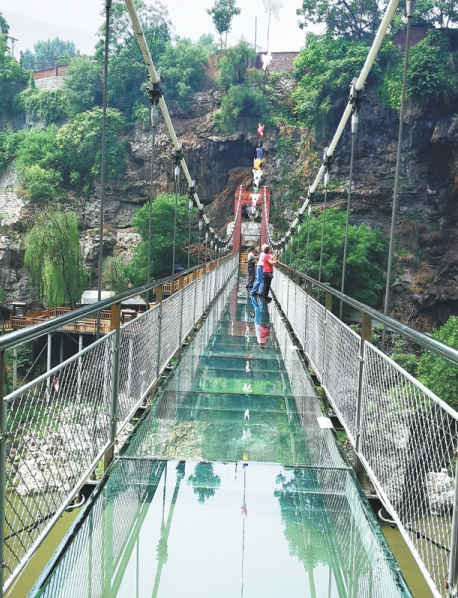
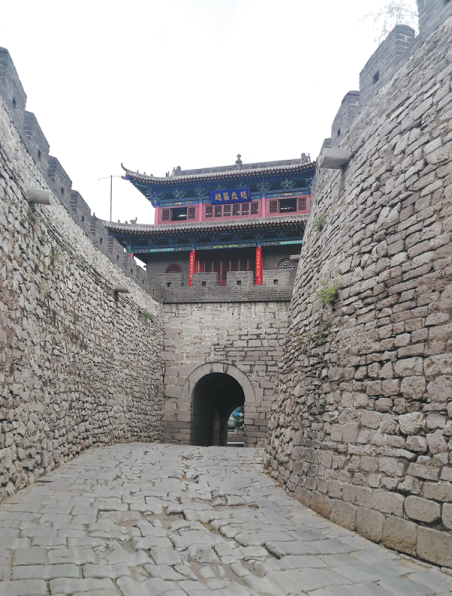
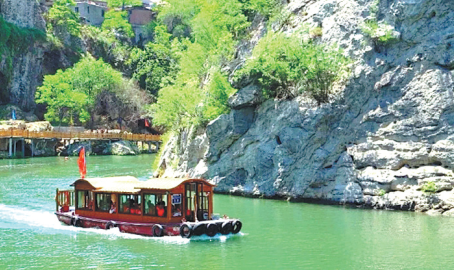
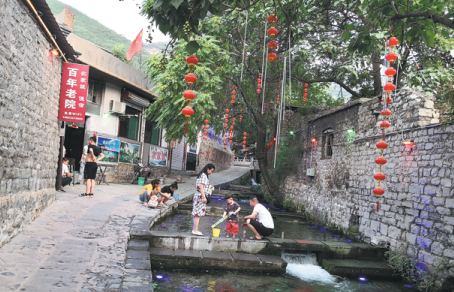
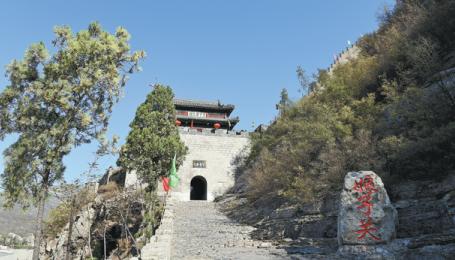
Today's Top News
- Xi chairs CPC leadership meeting on Party conduct, anti-corruption work
- Why Hainan Free Trade Port stands out
- Rule of law strengthens business environment
- Documents affirm one-China principle
- Central SOEs urged to push upgrading
- Agreement boosts ocean governance






























